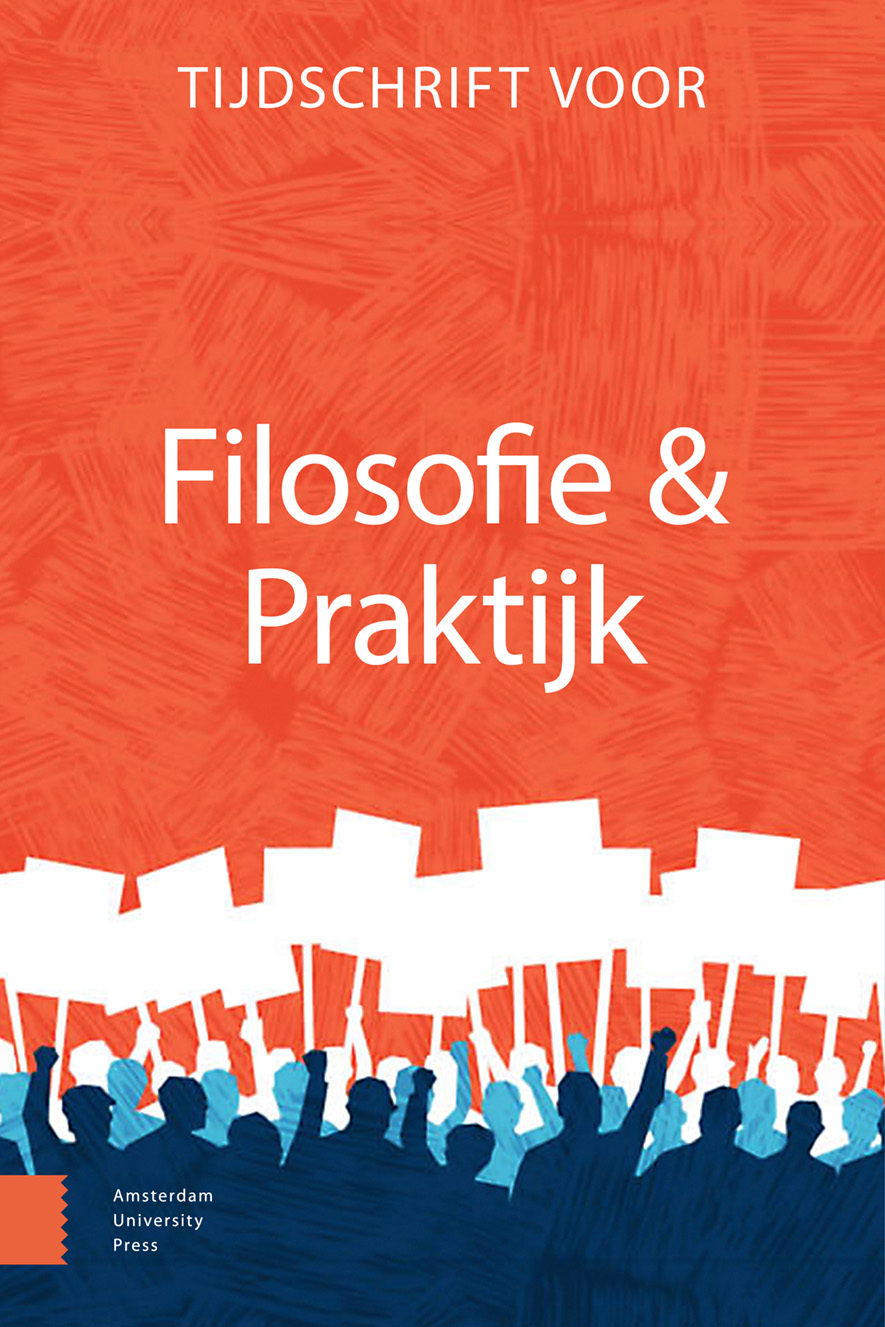- Home
- Publications
- Filosofie & Praktijk
- Previous Issues
- Volume 45, Issue 2, 2024
Filosofie & Praktijk - Volume 45, Issue 2, 2024
Volume 45, Issue 2, 2024
- Artikel
-
- Article
-
-
-
Why is Associative Democracy still a ‘realist utopia’ even in the light of recent poly-crises?1
More LessAuthor: Veit BaderAbstractDefenders of Associative Democracy (AD) have presented ways to supplement and improve representative democracy but also alternatives to statist socialism and neo-liberal capitalism. In this article I focus on crises of representative democracies by explaining what makes AD an attractive realist utopia also compared with broader theories of civil society and governance: its combination of economic, societal and political democracy; its focus on democratic institutional pluralism in all these regards; its considered moral/political minimalism, and its practical experimentalism. Then I summarize some of the important economic, societal and political changes during the last decennia – particularly the consequences of the Crisis of Financial Capitalism – and the recent, urgent ‘poly-crises’ that seem to make AD plainly utopian again. I finish this article with a brief sketch of rethinking basic principles of democratic socialism and of what we could learn from socialist traditions. A second article (forthcoming in the next issue) discusses institutional proposals for realist democratic socialisms.
-
-
- Artikel
-
-
-
Waarom opvoeding een morele aangelegenheid is. Een Kantiaanse analyse
More LessAuthor: François LevrauAbstractThis article explains how Immanuel Kant’s pedagogical thinking can be situated against the epistemological and moral-philosophical background of his doctrine of duties and his anthropological views and also how it is related to a concrete education for world citizenship. Kant’s book On Pedagogy is taken as a starting point. Even though this book may be over two hundred years old, and some of the views expressed therein may seem outdated, I want to show that it is more than worth the effort to keep studying it. After all, clear answers can be found that provide clarity about the ‹what›, ‹how› and ‹why› of upbringing.
-
-
-
-
In de greep van het moederschap
More LessAuthor: Annalin van PuttenAbstractSome ecofeminists want to reclaim a ‘female nature’ and abilities and skills that are considered ‘feminine’, like female fertility, sexuality and motherhood. They argue that this nature and these skills have been suppressed in a male-dominated world. Other feminists consider this notion of a ‘female nature’ as gender-affirming, sexist or oppressive. Does the reclaiming or reinforcing of a ‘female nature’ lead to an emancipated thinking about gender, or does it prove a patriarchal and misogynistic rule?
-
- Review-Artikel
-
-
-
Ethiek, kolonialisme en het Britse koloniale verleden
More LessAuthor: Menno KammingaAbstractThe present article offers a broad and critical discussion of Nigel Biggar’s important and controversial book on the ethics of the British (and European) colonial past. Firstly, the book’s thesis that ‘anti-colonialist’ critics are wrong to regard British colonialism as essentially racist, exploitative, and violent, is presented. Next, after a brief philosophical introduction on the moral evaluation of colonialism, Biggar’s book is summarized. Then, three broad points are made regarding Biggar’s moral-historical assessment: (i) its ethical framework lacks a substantial empathetic element; (ii) it succeeds in sowing doubts about the ‘anti-colonialist’ case, but without really making British colonialism justified thereby; (iii) it tends to condone the serious injustice of British colonialism. Finally, it is concluded that, philosophically, Biggar’s book offers little more than a limited starting-point for the task of reckoning morally with European colonialism.
-
-
-
-
Leven in twee werelden
More LessAuthor: Kees HellingmanAbstractThe present review discusses the book Transklasse. Leven in twee werelden by Lenette Schuijt, author and professional consultant for managers aiming at leadership for a more humane world. This book, partially autobiographic, tells the reader what it means to become a social climber in all its aspects: coming loose of the original milieu, entering a new one, the different cultures, difficulties to be met, feelings of discomfort, and so forth. Her account is thoroughgoing critical of social structure, its class division and class feeling. The author of this review adds to this remarks on the position of the underclass.
-
- Minima Philosophica
-
-
-
Bestaat het absolute kwaad?
More LessAuthor: Govert den HartoghAbstractDoes absolute evil exist, evil that cannot be explained, evil for evil’s sake? The murder of Israeli citizens by Hamas on October 7th 2023 has been considered by some as an example of that kind of evil. Immanuel Kant denies that absolute evil exists, a view that some commenters regard as extremely naïve, considering the excessive and counterproductive character of some evil acts. At different places in his work, however, Kant describes a number of mechanisms that can explain these aspects of evil. All have to do with the comparative nature of self-love. Kant’s observations may, to some extent, help us to understand what happens in Gaza.
-
-
- Boekbespreking
-
- Signalementen
-
Most Read This Month


